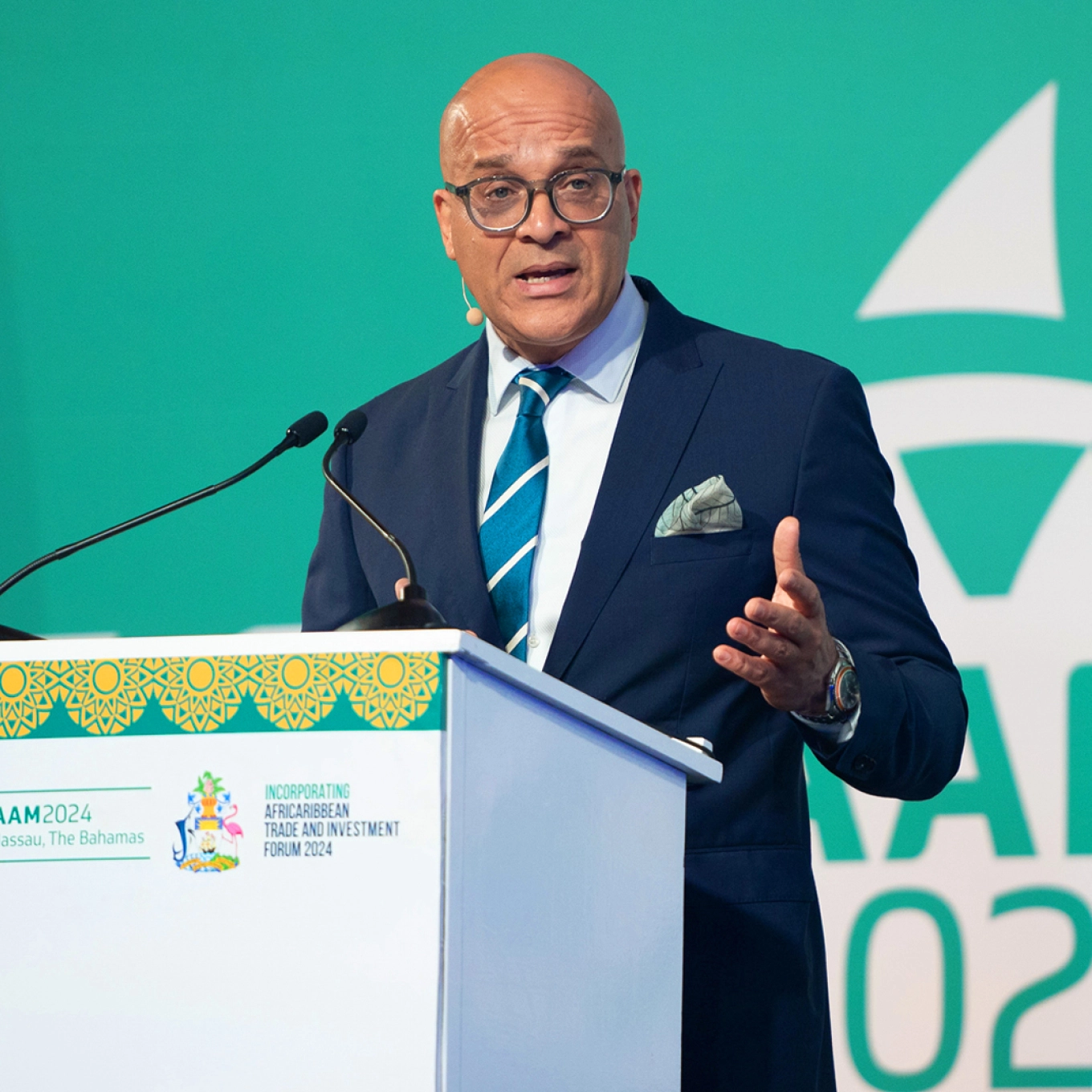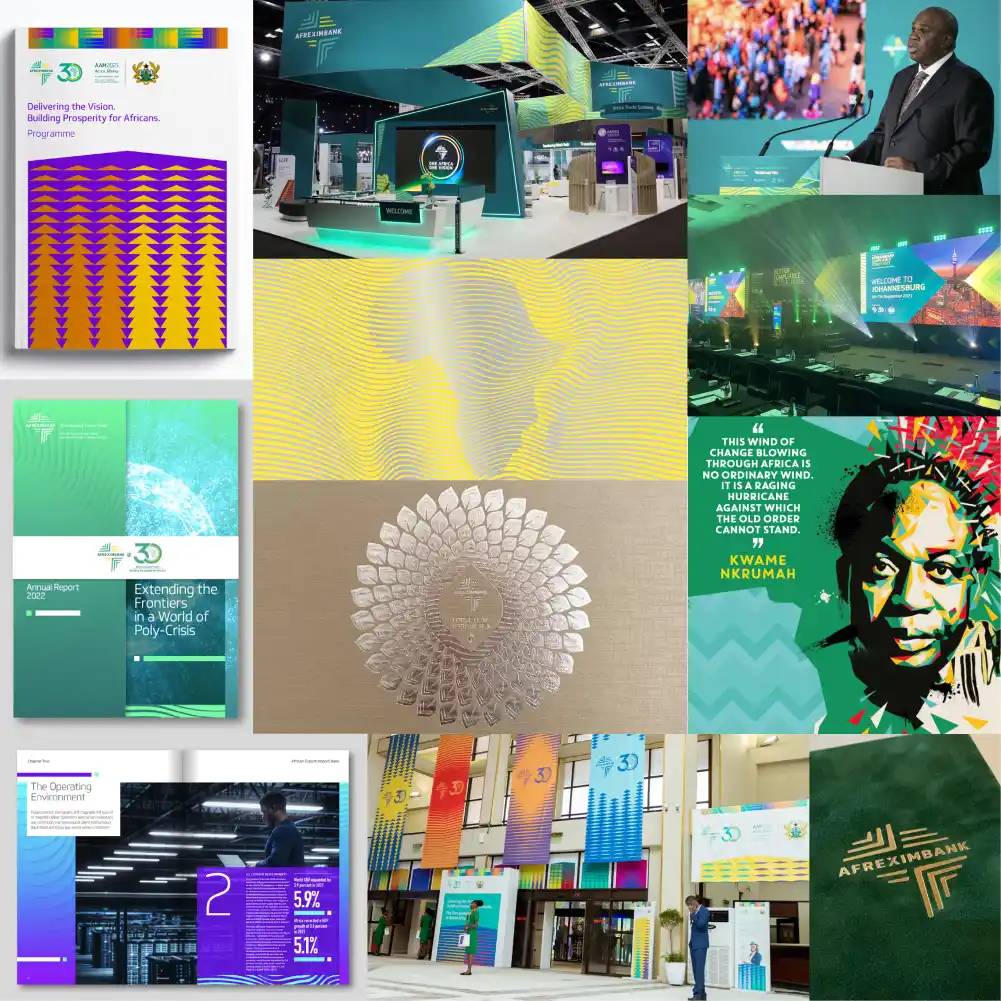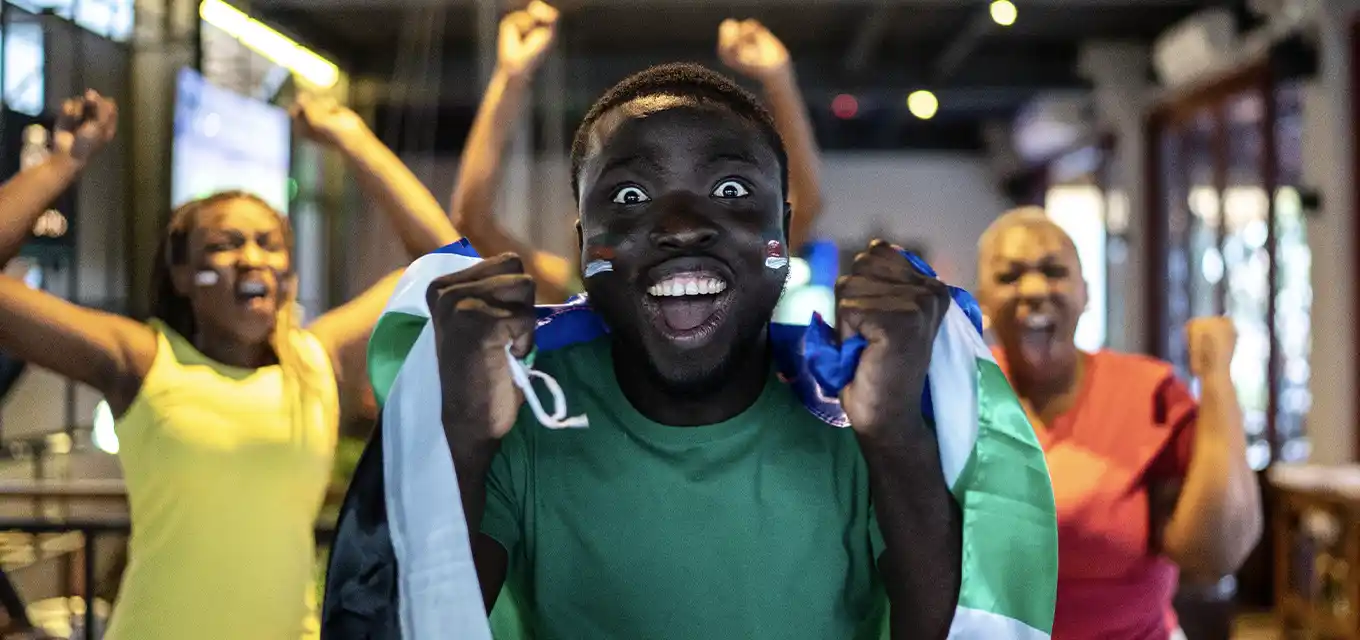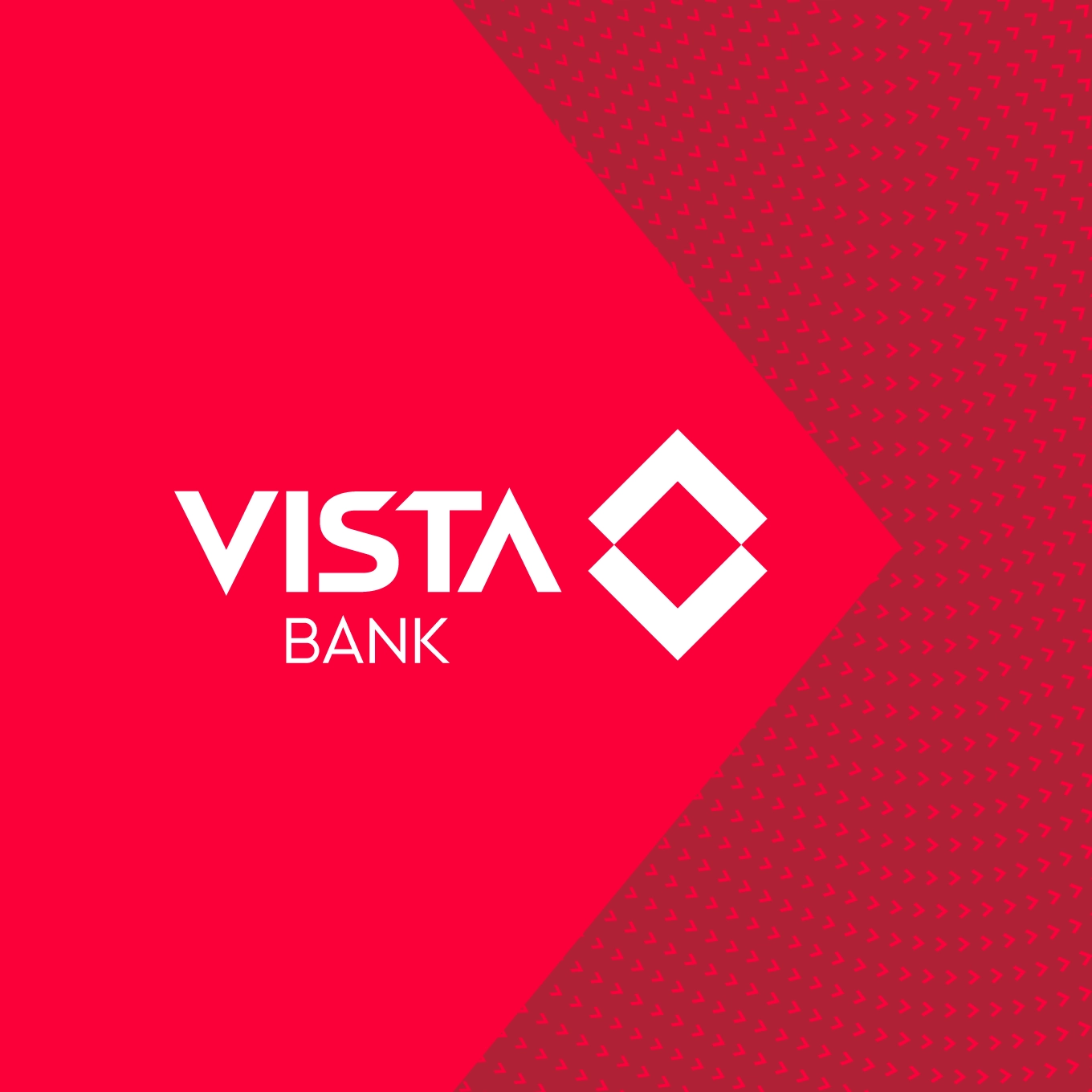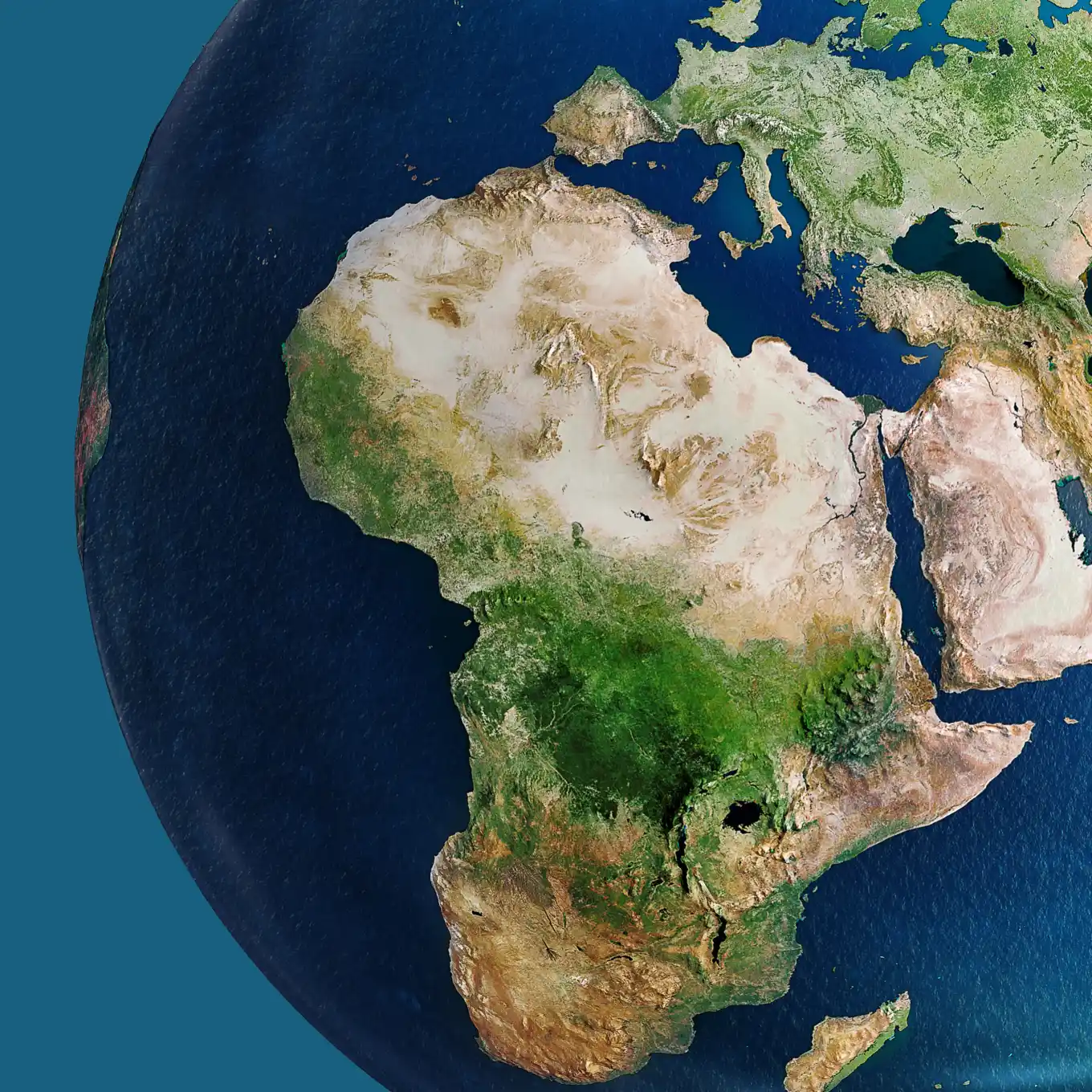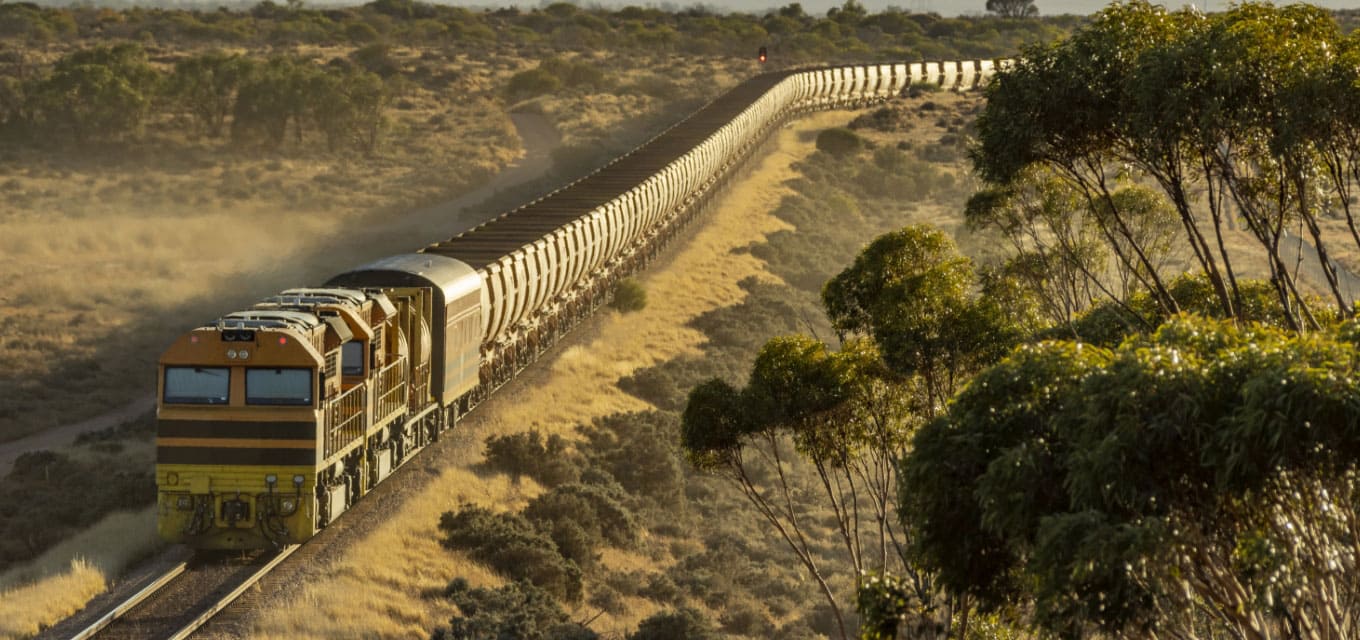Work
Discover how we deliver bespoke solutions to our clients.
Select category
All
360
Brand design
Digital
Events
Marketing & Comms
PR
Production
Afreximbank
Since 2018, we have developed the core brand thinking and execution of all Afreximbank events as well as the design and communications for many of its key initiatives designed to accelerate trade on the continent.
See details
Failed to retrieve case studies.
No case studies.


